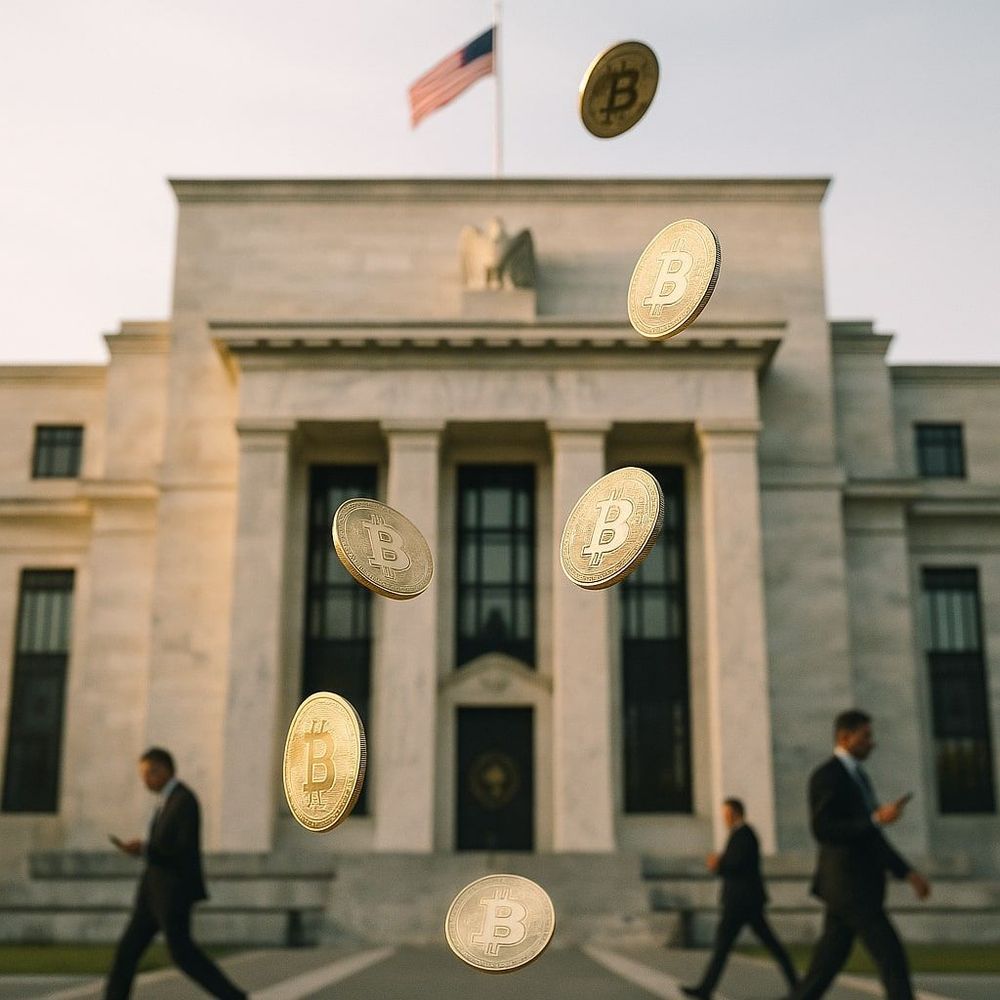How BlackRock Thinks Bitcoin Should Be Priced: Not Tech, But Chaos Hedge
🪙 Not Tech Hype — Bitcoin as a Bet on Global Chaos
Forget FAANG stocks and cash flow models — BlackRock wants you to think about Bitcoin as the asset that wins when the world loses its mind.
According to Jay Jacobs, Head of U.S. Thematic and Active Equity ETFs at BlackRock, Bitcoin’s real value isn’t about growth stocks or tech rallies. It’s about scarcity, uncertainty, and geopolitical disorder.
“Bitcoin thrives when you have more uncertainty and are looking for something that’s going to behave differently.”
— Jay Jacobs, BlackRock
🌍 BTC Doesn’t Care About Silicon Valley
Jacobs dropped a stat that flips the crypto narrative on its head: the long-term correlation between Bitcoin and U.S. equities is just 2–3%.
- What boosts tech stocks? ✔️ Growth, ✔️ certainty, ✔️ peace.
- What boosts Bitcoin? ✔️ Inflation fears, ✔️ geopolitical risk, ✔️ the opposite of calm.
Bitcoin isn’t your speculative tech play — it’s your hedge for when the world gets weird.
💥 Flows Tell the Story: Bitcoin and Gold, Side by Side
On April 23, BlackRock’s iShares Bitcoin Trust (IBIT) pulled in $643 million — its biggest single-day net inflow since launch. Total assets? Over $54 billion.
Meanwhile, gold ETFs are also seeing inflows spike.
The common thread? Investors are piling into hard assets — the stuff that might survive if the financial system doesn’t.
“People are looking for those assets that will behave differently.”
— Jacobs
🧭 Bitcoin Fits Into BlackRock’s “Mega-Forces” Playbook
This thinking lines up with BlackRock’s own 2023 "mega-forces" thesis, which flagged geopolitical fragmentation as a new structural driver of markets.
Here’s what’s happening behind the scenes:
- Central banks are diversifying away from USD reserves.
- Over 1,044 tonnes of gold bought by central banks in 2024 alone — double the decade average.
- Bitcoin is now part of that reserve diversification story.
Bitcoin isn’t competing with tech stocks. It’s competing with gold, bonds, and the dollar itself.
💎 Valuing BTC: Scarcity > Cash Flow
Forget P/E ratios. BlackRock’s model for Bitcoin leans on three pillars:
- Scarcity (fixed supply + halving)
- Sanction resistance (hard to freeze or seize)
- Decorrelation (moves opposite to stocks/bonds)
With IBIT absorbing more Bitcoin daily than miners can produce post-halving, scarcity is no longer theoretical — it’s baked into the market mechanics.
“The rise of things like Bitcoin is directly related to the need for more alternative assets in a destabilizing world.”
— Jacobs
🧠 TL;DR: BlackRock’s Bitcoin Thesis = Gold 2.0 for a Messy World
- BTC isn’t priced like tech — it’s priced like a hedge against geopolitical chaos.
- BlackRock’s inflows show growing demand for uncorrelated, hard assets.
- Forget earnings. Bitcoin’s valuation is about scarcity, safety, and surviving uncertainty.
The world’s biggest asset manager is clear: Bitcoin isn’t just a crypto asset — it’s a portfolio necessity when nothing else feels safe.

Recent News
All Time High • Live
Have questions or want to collaborate? Reach us at: [email protected]










